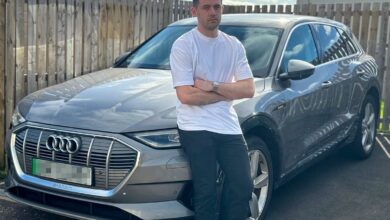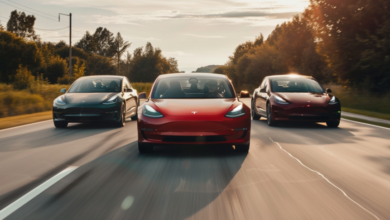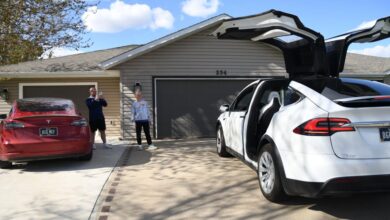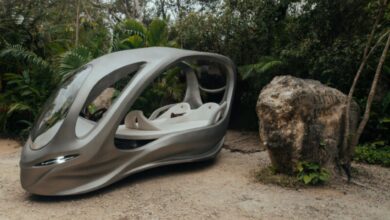B.C. EV sales rose at start of 2024 — but so have inventories
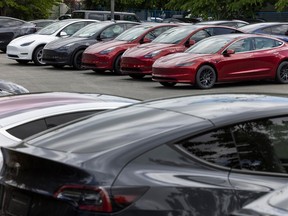
Overall EV sales are strong in B.C., but a buildup of Tesla inventories invites questions about market saturation
Article content
Sales of electric vehicles continue to rise in B.C., statistics show, but so have inventories of new cars on dealers’ lots.
Growing inventories suggest that the rebound in auto manufacturing is catching up with consumer demand following the pandemic-sparked shortages of computer chips and parts that strangled the supply of new vehicles starting in 2020.
Advertisement 2
Article content
Article content
The market publication AutoTrader counted 4,824 new EVs available for sale on B.C. car lots in the week of May 13, compared with just 801 EVs on the corresponding date a year ago, according to Baris Akyurek, AutoTrader’s vice-president of insight and intelligence.
That is only a single-week snapshot, but Akyurek said it is “not really surprising because as we all know, we have all these mandates (to increase EV availability) and timelines to hit.”
Car dealers, however, are beginning to wonder whether the market for EVs is becoming saturated, with some 80 new models to choose from and more skeptical buyers arriving on car lots.
“We’ve kind of gone through the early adopters of the technology and the vehicles (and) didn’t hesitate,” said Blair Qualey, CEO of the New Car Dealers Association of B.C. “Now we’re at that sort of big bubble in the middle of people who ask more questions and have more issues to resolve before they will put their toe in the EV water, as it were.”
Statistics collected for B.C.’s Go Electric EV rebate program show 8,677 buyers applied for the $4,000 incentive over the first four months of 2024, a 53-per-cent increase from 5,686 applications during the same months of 2023.
Article content
Advertisement 3
Article content
Rebate figures don’t capture all EV sales, but numbers have risen sharply since 2019 when 3,283 buyers applied for rebates over the same months. 2022 was the only year in which the number of rebates fell below the previous year for the corresponding time period.
Earlier this year, manufacturers Ford and General Motors reported slowing sales. In Ford’s case, the uncertainty about customer demand was cited in its decision to delay EV production at its Oakville, Ont., plant.
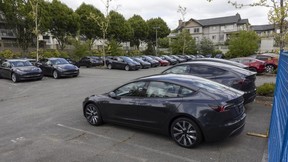
In B.C., neighbours of a parking lot on 197th Street in Langley near 64th Avenue have noticed the number of new, unsold Tesla automobiles build up since January, as reported by the Langley Advance community newspaper.
Tesla did not respond to Postmedia questions about sales in B.C., but the company has reported that its deliveries of vehicles to customers hasn’t kept pace with production in its quarterly financial results.
Company financials don’t report separate Canadian results, but across the company, Tesla delivered 386,810 new vehicles to customers over the first three months of 2024, compared with the 433,371 cars it built during the same period.
Advertisement 4
Article content
In 2023, Tesla delivered 422,875 cars to customers in the first three months of the 440,808 that it manufactured.
B.C. does lead Canada in EV adoption with electric models making up 22 per cent of new-vehicle sales, Qualey said. But AutoTrader has tracked a waning of interest in EVs in its own consumer surveys.
Akyurek said its 2024 national consumer survey, which sampled the opinions of 1,600 people, found that 57 per cent of B.C. respondents would consider an EV as their next purchase, compared with 60 per cent in its 2023 survey.
That is not a big decline in EV-leading B.C., compared with the national decline from 56 per cent in 2023 to 46 per cent in 2024, “but it’s a decline nevertheless,” Akyurek said. Buyers remained more interested in hybrid vehicles.
Any waning of interest is a concern to car dealers, particularly with CleanBC’s mandate to make 90 per cent of new-car sales zero-emission vehicles by 2030, according to Qualey.
Qualey said rebates have been an important part of the equation, because EVs are still more expensive than comparable internal-combustion vehicles, but there are rebates to help homeowners and businesses make EV charging more accessible.
Advertisement 5
Article content
B.C. currently has about 5,300 public charging stations for EVs, but “to reach the next big target,” of 90 per cent of all new vehicle sales by 2030, the province will need a network with 25,000 public charging stations.
Recommended from Editorial
Bookmark our website and support our journalism: Don’t miss the news you need to know — add VancouverSun.com and TheProvince.com to your bookmarks and sign up for our newsletters here.
You can also support our journalism by becoming a digital subscriber: For just $14 a month, you can get unlimited access to The Vancouver Sun, The Province, National Post and 13 other Canadian news sites. Support us by subscribing today: The Vancouver Sun | The Province.
Article content


